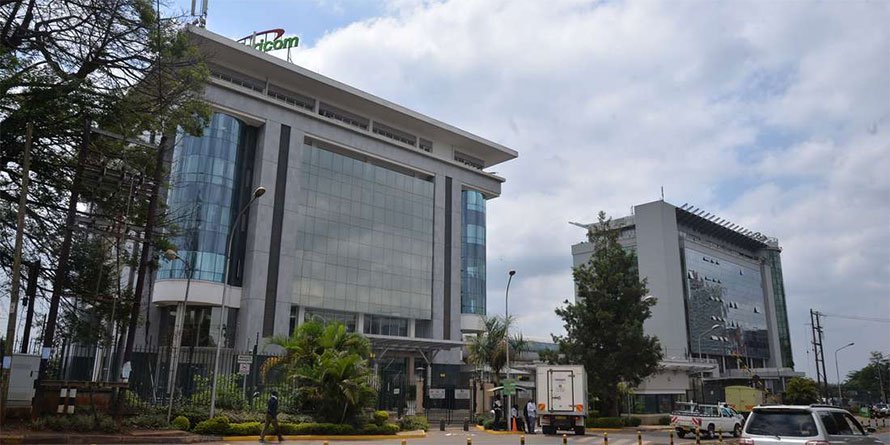Safaricom headquarters in Westlands, Nairobi. FILE PHOTO | NMG Local individuals are being squeezed out of the ownership of Safaricom #ticker:SCOM by foreign investors and local companies, reversing the government’s objective of boosting Kenyan retail investors’ stake in the country’s most profitable firm.
August regulatory filings show that domestic investors, including citizens of East African countries, now hold 1.5 billion units of the telco’s stock equivalent to a 3.8 percent stake.
This represents a 68.6 percent shrinkage from the 4.8 billion shares equivalent to an 11.9 percent stake they acquired on June 9, 2008 when the Nairobi Securities Exchange-listed firm went public through an initial public offering (IPO).
Foreign investors including asset managers like BlackRock, JPMorgan and Fidelity have meanwhile more than doubled their combined stake to 10.9 percent from five percent over the same period.
Local institutional investors such as insurers and the National Social Security Fund (NSSF) have also been accumulating the company’s shares.
Retail investors have been net sellers of Safaricom shares since the telco hit the stock market where its share price initially dropped sharply below the IPO offer price of Sh5 to hit lows of Sh2.50.
More than 250,000 retail investors exited before and midway through the telco’s long-term stock rally which gained momentum from December 2012, foregoing gains of more than Sh80 billion, excluding dividends.
The share is currently trading at Sh30 each at the Nairobi bourse and accounts for 55 percent of the entire stock market value.
The government allocated local investors 4.8 billion shares or nearly half of the 10 billion units sold in the IPO as a deliberate policy to help them share in the telco’s prosperity.
“Key among the government’s privatisation objectives is the need to broaden the shareholding of State-owned corporations among Kenyans, as well as to deepen the capital market and raise resources for infrastructure development,” the Treasury wrote in Safaricom’s IPO prospectus.
The government raised Sh50 billion from the IPO by selling 10 billion shares equivalent to a 25 percent stake in the telco to individuals, local firms and foreign investors.The hype surrounding the offer saw retail investors apply for 22.6 billion shares or 4.7 times the 4.8 billion units that they were ultimately allocated.Banks offered their customers loans to buy the shares while investment groups were also encouraged to participate in the IPO.Some 800,000 new accounts were opened because of the offering, more than doubling the number of investors at the NSE to 1.5 million […]
